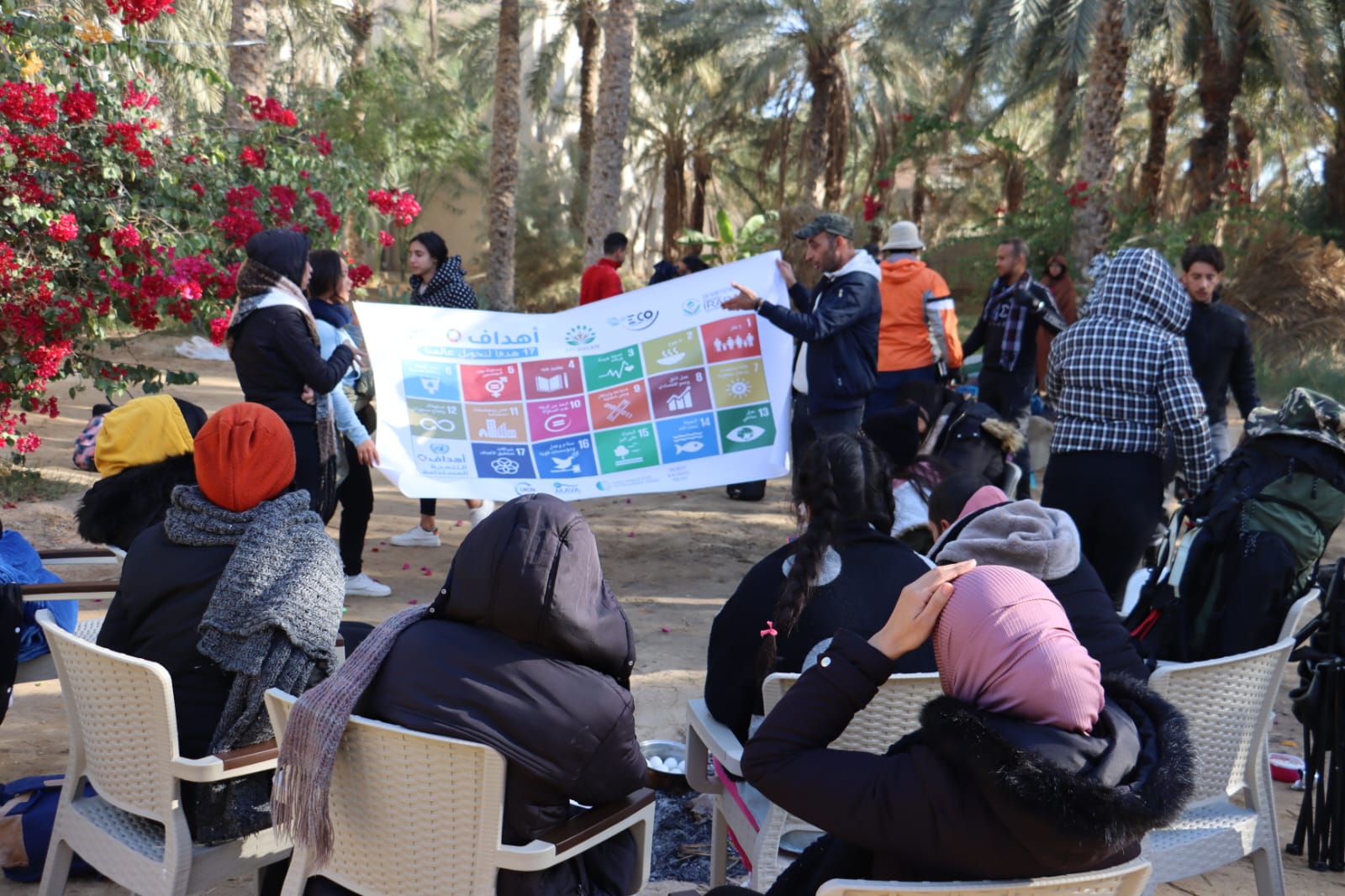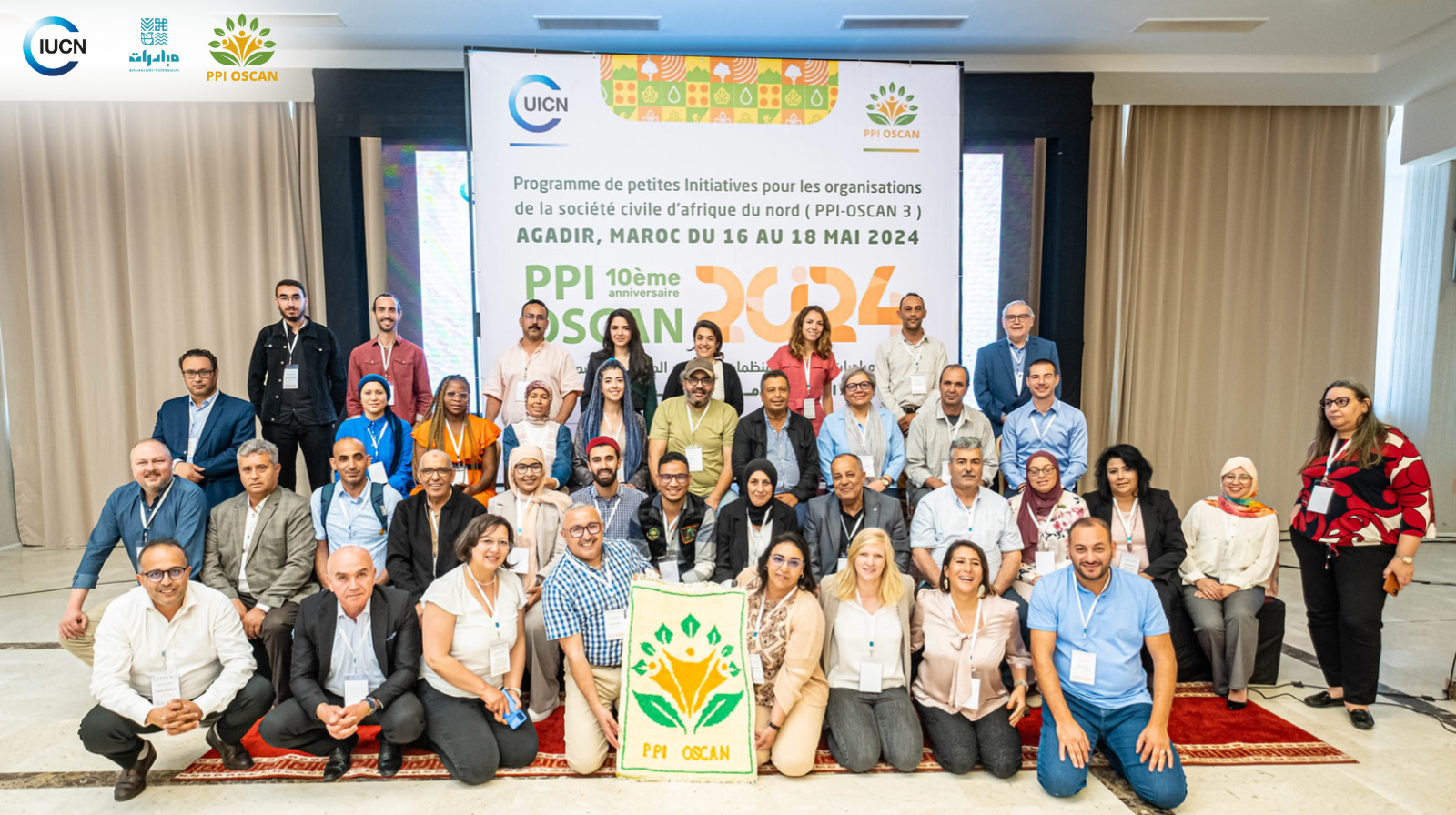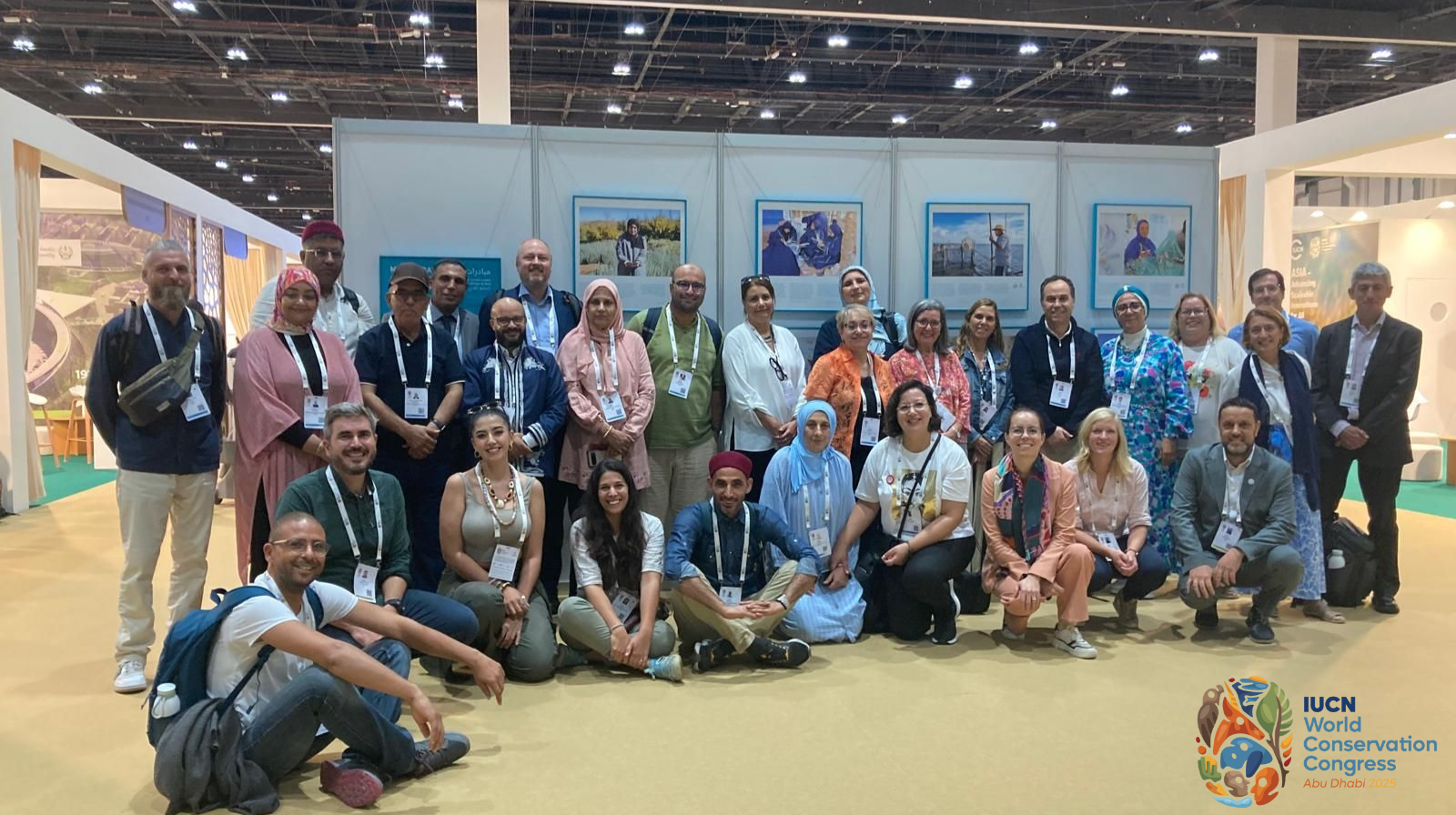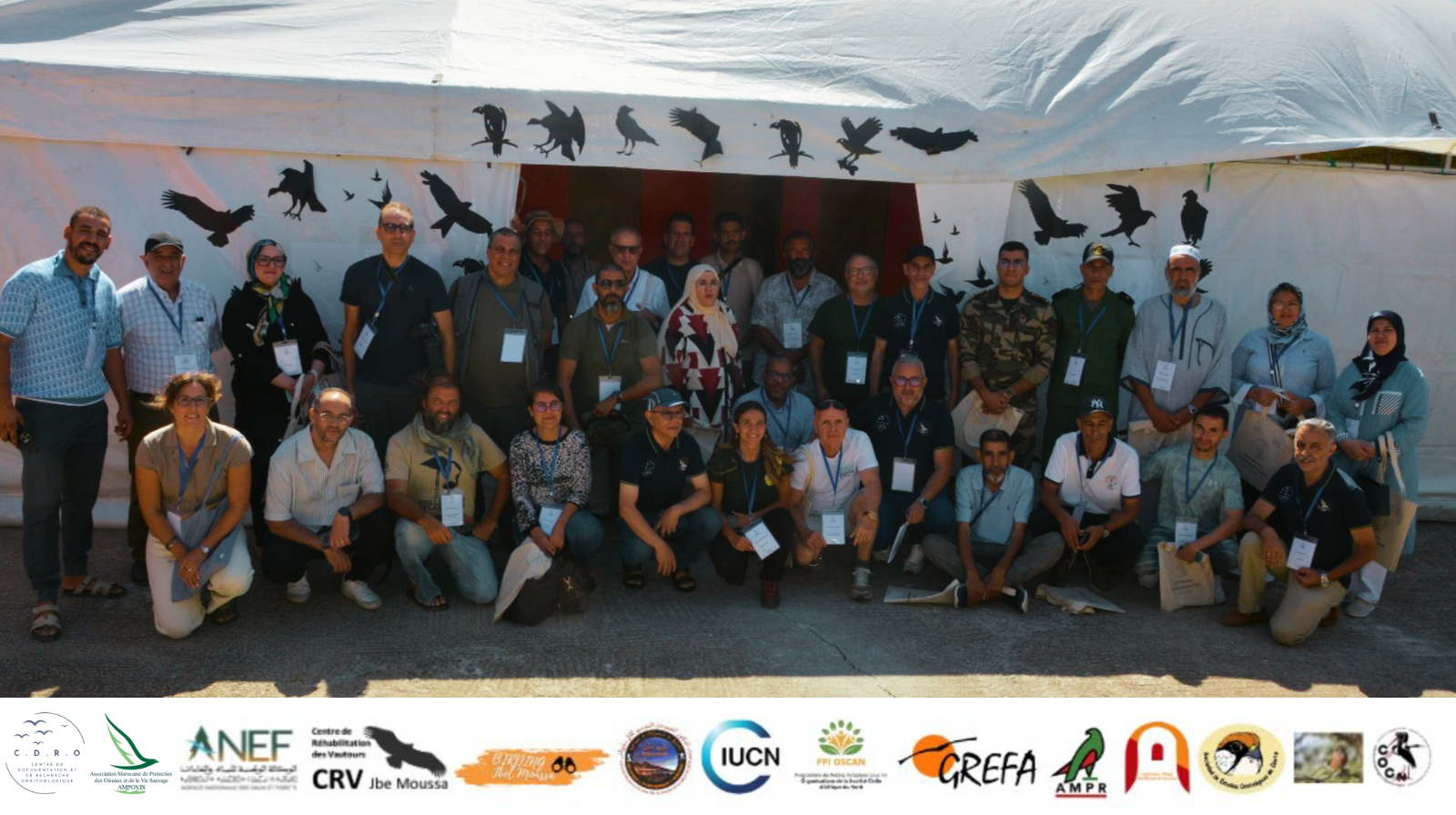Tunisian oases cover more than 41 thousand hectares of Tunisia’s geographical area and are home to around 10% of its total population. Despite the aridity of the land surrounding them, they have always been important centres of agricultural production, trade and exchange, and continue to play an undeniable socio-economic and environmental role for the farming families that succeed one another from generation to generation. This agrosystem, today weakened by anthropic pressure, is also one of the most vulnerable to the effects of climate change and to the forecasts of water scarcity, as indicated in Tunisian studies.

To discuss these issues and as part of the Tunisian Climate Days, the Tunisian association Irada Pour le Développement Tozeur, one beneficiary of the PPI OSCAN 3 programme, organized a two-day conference entitled “Tunisian oases facing climate change: vulnerability and resilience”. This was done in partnership with the association A.Tu.Climat and was an opportunity for the two associations to sign a partnership agreement to improve the resilience of oasis ecosystems to climate change.
Participants had the opportunity to visit experimental cultivations of date palm (Phoenix dactylifera) in the Jérid oasis (south-western Tunisia), set up as part of the PPI OSCAN Irada Tozeur Eco Palm project. The association is working with farmers’ families to improve their water management and irrigation systems and the valuation of the various products obtained from palm trees. By improving biodiversity living within the crops and managing the benefits for the family farmers better, the association aims to fight against the abandonment of land and the transition of farms to intensive farming.
During the second day of conferences, participants were able to attend several discussions on the conservation of the oasis ecosystems, with the participation of the Governor, the head of the geography department of FLSHS, as well as experts and professors from the universities of Tunis and Paris-Cité France.
For more information on the Irada Tozeur Eco Palm project: PPI OSCAN 3 – Association IRADA pour le développement de Tozeur – MUBADARAT (mubadarat-uicn.org)

Contact: iradatozeur2018@gmail.com
This project is implemented within the third phase of the Programme of Small Initiatives for Civil Society Organizations in North Africa (PPI-OSCAN3), funded by the French Facility for Global Environment (FFEM), the MAVA Foundation, and the Foundation Sigrid Rausing Trust. This Programme aims to strengthen civil society in North Africa by supporting emerging associations wishing to tackle the new challenges of the environment and sustainable development through innovative initiatives in the region. To know more about PPI OSCAN 3 projects: Projects – MUBADARAT (mubadarat-uicn.org)







